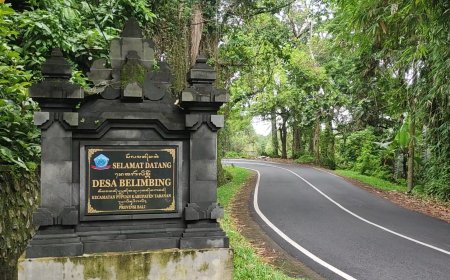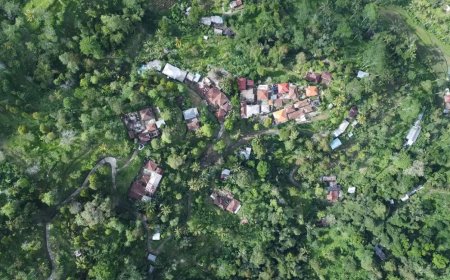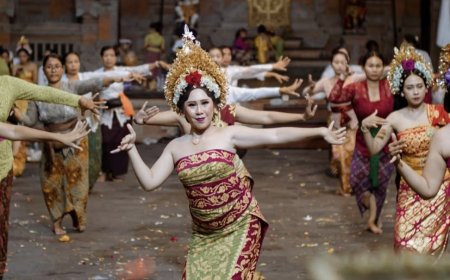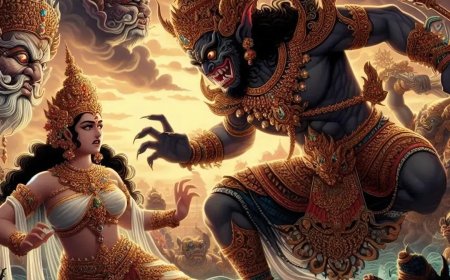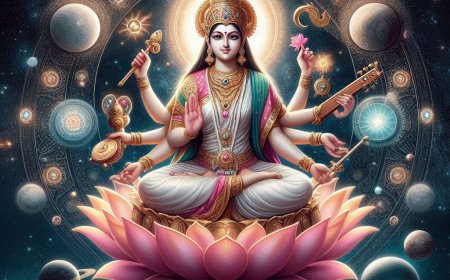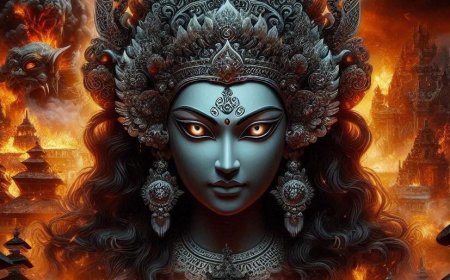The Legacy of King Udayana: Bali's Influential Ruler and His Enduring Impact
on a short journey to the golden age of Ancient Bali, where a wise King named Udayana ruled with wisdom and carved out a fascinating history. From his close relationship with the Medang Kingdom in East Java to his role in forming the Warmadewa Dynasty, King Udayana is not only known as a wise ruler, but also as the father of the great figure, Airlangga. Let's explore the extraordinary legacy left by King Udayana, a figure so revered that his name still resonates in universities and even in the Indonesian Army's defense command in the region that includes Bali, West Nusa Tenggara and East Nusa Tenggara.
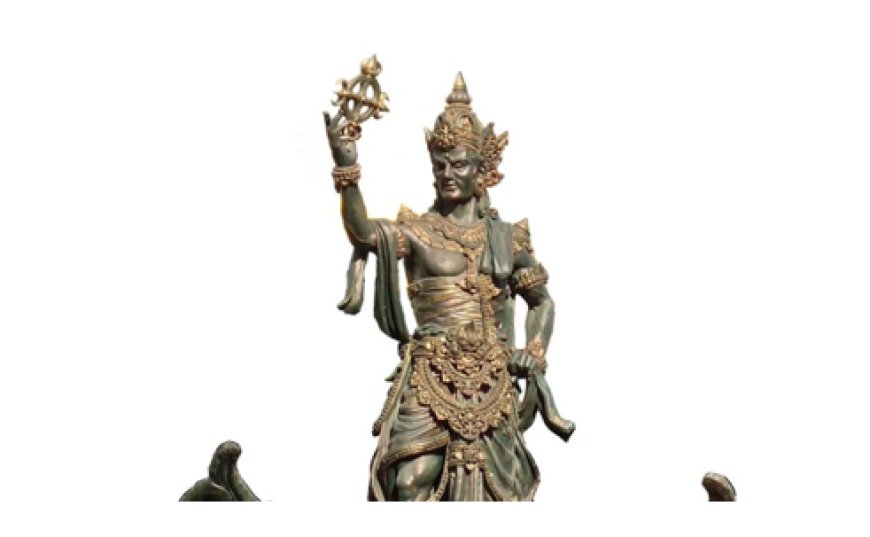
King Udayana, also known as Sri Dharmmodayana Warmmadewa, was the revered ruler of Ancient Bali from the Warmmadewa dynasty. He married Gunapriya Dharmmapatni (also known as Mahendradatta), the daughter of Sri Makutawang-Sawarddhana from the Kingdom of Mataram. The names of King Udayana and his queen are recorded in several inscriptions found in Bali, as well as in the Pucangan Inscription in Java, which is a legacy of their eldest son, Airlangga.
King Udayana and his wife ruled Bali from 911 to 933 Saka (989 to 1011 AD). According to historical inscriptions, Udayana was a wise and judicious ruler. His governance was based on the principles of deliberation and consensus, with the welfare of the people being the primary goal.
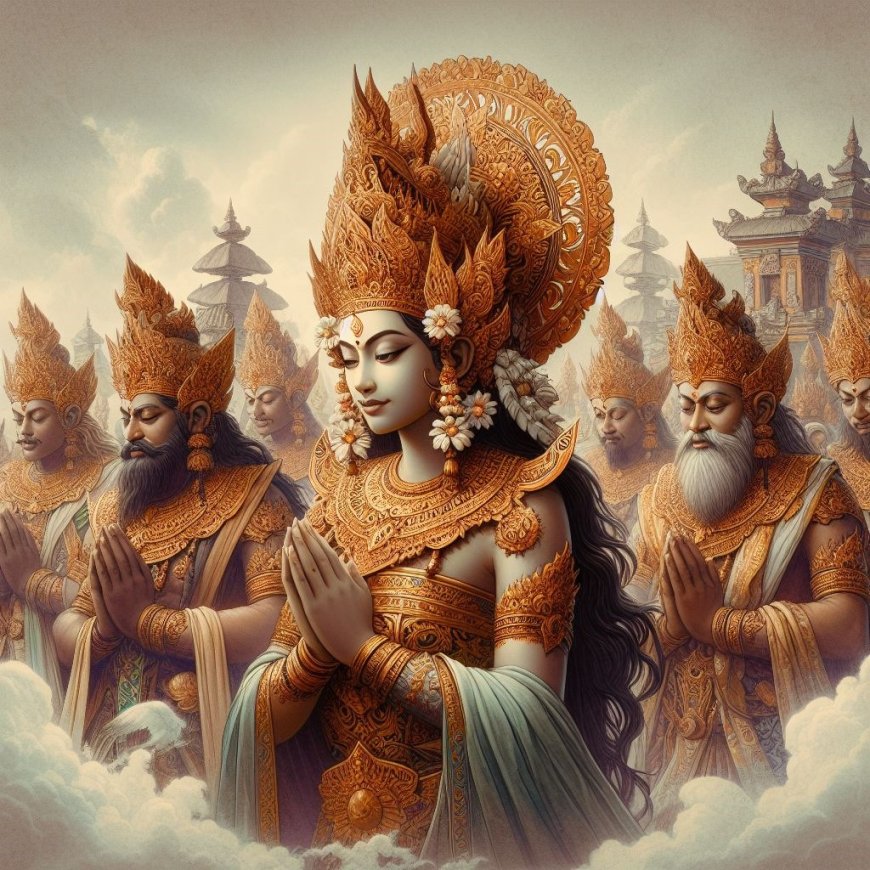
The Great Queen Sri Gunapriya Dharmapatni (Source: AI personal collection)
King Udayana ruled the Bali Kingdom from 989 to 1011, alongside his queen, Mahendradatta (also known as Gunapriya Dharmmapatni). Mahendradatta was the sister of Dharmawangsa Teguh, who ruled the Medang Kingdom in East Java from 991 to 1007.
In addition to being a revered and influential ruler of Bali, King Udayana is also known for his legacy through the kings of the Kediri Kingdom in East Java. He was a member of the Warmadewa Dynasty and the son of Janashadu Warmadewa, who governed Bali from 975 to 983. Udayana ascended the throne in 989, succeeding Sri Wijaya Mahadewi, the first female ruler of Bali (983-989). His close relationship with the Medang Kingdom in Java led to his marriage with Mahendradatta, who, upon becoming Udayana’s consort, was given the title The Great Queen Sri Gunapriya Dharmmapatni.
King Udayana was a prominent ruler from the Warmadewa dynasty, which founded the Bedulu Kingdom. He played a crucial role in the history of the archipelago and is also known as the biological father of Airlangga, the founder of the Kahuripan Kingdom, which later split into the Janggala and Kediri Kingdoms.
The Warmadewa dynasty ruled Bali in the 10th century. The Blanjong Inscription, found in the Sanur area, states that the dynasty was established by Sri Kesari Warmadewa. The kingdom adhered to Mahayana Buddhism and maintained a close relationship with the Medang Kingdom in East Java during the 10th and 11th centuries.
King Udayana significantly advanced Balinese society. He was supported in his governance by the esteemed mpu Mpu Kuturan. Under his rule, the Balinese Hindu community became familiar with the temple system known as Kahyangan Tiga. Additionally, Udayana introduced an advanced economic system by replacing the barter system with currency. This innovation facilitated tax collection, making it easier for high-ranking royal officials and benefiting the Balinese people.
Due to his remarkable contributions, King Udayana is highly respected by the Balinese people. His legacy extends beyond Udayana University, the oldest and most prestigious university in Bali. The name Udayana is also honored by the Indonesian Army.
The Indonesian Army uses the name Udayana for its Regional Defense Command. This command covers the provinces of Bali, West Nusa Tenggara, and East Nusa Tenggara. The central headquarters of this regional command is located in Denpasar and is known as Regional Military Command IX/Udayana.





